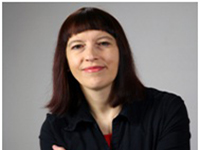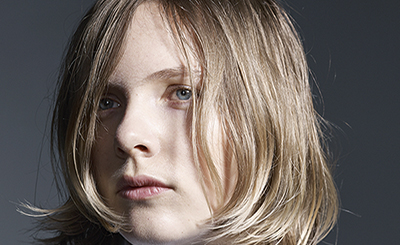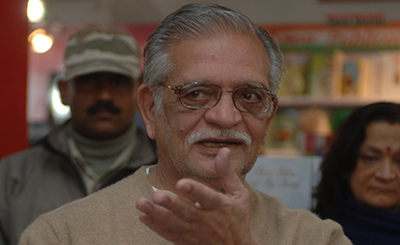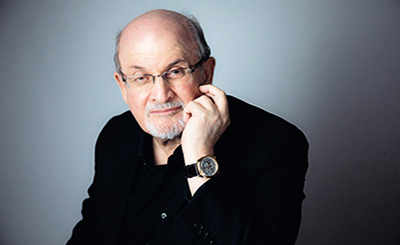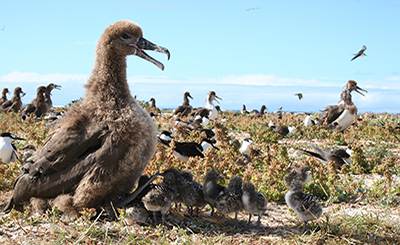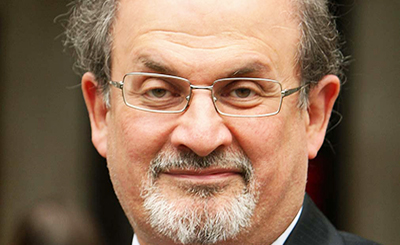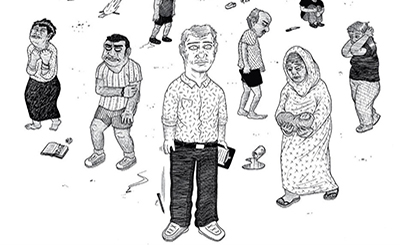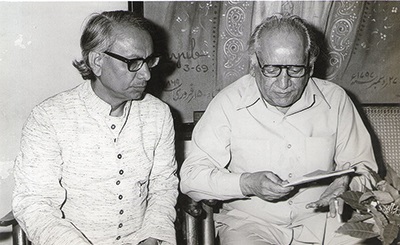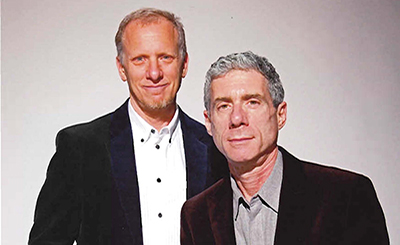
1996
The money’s been found,” Darko said one day, several months after Srebra joined the party. “We’re going to London.” “We’re going?” I asked, in surprise, not knowing whether “we” meant Darko was coming with us or only that Srebra and I were headed to London, the destination we had dreamed of for so long — not as tourists, but for the realization of our fate. “Yes, we’re going,” Darko said again, hugging both of us. “How could I let you go alone?” Srebra pulled me over and nestled beside him. She pulled his arms around her waist, while I stood within their embrace, restrained, motionless. “Everything’s arranged,” said Darko. “I’ve bought the tickets and have visas for you, well, not yet actually, because they wouldn’t give them to me without you there, but my father went to dinner with the British ambassador and told him the whole story. The ambassador already knew everything, though he’d already talked to the hospital in London. You have no idea the network that has been assembled for you, how many people are preparing for your operation — diplomats, doctors, and journalists, the whole world. I wanted it to be a surprise, and now we can really go. Tomorrow morning at seven o’ clock.” Darko was speaking excitedly. We stared into space above his head, mouths open, our breaths intermingling. It was rare that Srebra and I smelled good to each other, but at that moment our throats, our viscera, emitted scents that were floral instead of sour. A warm bliss spread through our souls, as if some spirit (the Holy one?) had settled within us. Our hearts beat with excitement and a bit off ear, though we weren’t thinking about the fear. It seemed that our departure for London predestined success, as if the trip to London was, in and of itself, the uncomplicated separation of our heads. No, we didn’t feel the fear, uncertainty, or worry. All those feelings arrived later that afternoon, when we went to tell our parents the day had come for our trip to London and our separation. “What’s wrong with how you are?” our mother asked. “You’re risking everything for this stupidity. That operation is difficult, and no one is giving you a guarantee. But go, since you’re so obstinate.” “You know best,” our father said. “Do whatever you want. You’re not children.” We sat in the dining room — Srebra and I, on the chairs we had always pulled side by side, our father and Darko sitting across from us — while our mother stood at the head of the table, where there was no chair, because it was leaning up against the wall. Darko drank rakija and said nothing. However, after our mother and father said what they had to say and we sat in silence with our chests full of that well-known feeling of powerlessness and anger, Darko said, “They’re not children, and the time has come for them to be separated.” Then he stood up, and we stood up after him, and, I don’t know how, we said goodbye to our mother and father. We offered them our hands, then our faces, two for one. They quickly kissed us, me on the left cheek, Srebra on the right. They shook Darko’s hand, and we left. I don’t know why, but, as we walked down the stairs, I crossed myself just as we passed Roza’s door. I crossed myself automatically, just as my mother did before every trip, murmuring, “Oh, Lord God! Oh, Lord God!” We left quickly. As always, Uncle Blaško was sitting on the balcony, and he greeted us, as always, with “Howdy Do!” Then we ducked into Darko’s car and set off, hurrying home to pack. Early the next morning, Darko’s mother and father came over. They hugged us, wished us luck, and shoved money into Darko’s hand. He said, “Everything’s already been paid for, right? The hotel, hospital, and operation?” They replied, “This is to help you get settled and to see a bit of London. You’ve never been there before.” Our passports were stamped with three-month British visas — tourist visas — and Srebra laughed. I said to her, “Wouldn’t you rather have a work visa?” and all of us laughed in the taxi as we drove to the airport in Petrovec with ecstasy, optimism, and high spirits. But as we passed our primary school, on the road to the airport, something tightened in my chest — sharp, like pincers. Srebra likely felt it as well, because both of us fell silent, and within us grew a kernel of worry and uncertainty mixed with a feeling of transiency, of nostalgia for our small pale red school, where, with conjoined heads, we had spent our childhood days. Now we were driving along the road we had gazed at through the school windows and from the school yard for eight long years. It had seemed to us then, as children, that this road led somewhere faraway, to a brighter future, that we could flee along this road from home and into the world. Here we were, traveling along this very road, toward a brighter future in which each of us would find her own life, with her own head. “Will you ever forgive me for what happened?” I asked Srebra in my mind, while pressing the icon in my pocket. “God will forgive you; he’s your friend,” I heard her voice say in my head with its familiar cynicism. Then I imagined her voice asking, “Tell me this, at least: it good for you?” “I don’t know,” I responded in my head again. “You can believe it or not, but Darko and I didn’t have sex, not the way you think. Just with our hands,” I thought, cheeks flaming. “Ah, hand jobs. What a good idea. When we’re separated, I’ll have sex with him like that too.” That is how Srebra’s inner voice spoke to me, while in the car it was quiet, Darko’s hand resting on Srebra’s shoulder. I turned my left shoulder away, as far as my head would allow. The radio was playing some psychedelic song by the group Dead Can Dance. Had Darko chosen the seventeenth of August 1996 for our flight to London on purpose? It was our birthday; we were turning twenty-four. For all twenty-four of those years, Srebra and I had carried our heads together. She had a husband and a dead child; I didn’t even have that. We were living at the wrong time, in the wrong place, in the wrong bodies.
On the plane, Darko was in front of Srebra and me, seated beside a passenger holding a briefcase on his knees. Darko must have looked at him inquisitively, because the man turned and told him he was going to London to see how things were progressing with the Macedonian denar. He told him how, at any moment, the Royal Mint would be producing a gold denar with the crest of Macedonia on one side and storks on the other. “To commemorate the fifth year of our independence,” he said. Darko said this was the first time he had heard anything about it. “Is Macedonian money really made in London?” he asked. “We don’t have a mint or a printing facility for money,” the man with the briefcase said. “London is the best place for that.” It seemed that London was best for everything — for money and for separating heads. Heads or tails, the flip of a coin could settle the fate of a life, a country, or a person. Srebra swallowed a lump in her throat. I said nothing, though I suspect we were thinking the same thing. I immersed myself more deeply in Sabato’s novel The Tunnel, and she into Seneca’s Letters from a Stoic. Darko didn’t mention his conversation with the man beside him, who, when we landed, immediately disappeared in the crowd. In London, a black taxi brought us to our hotel in Kensington, the Golden Star Hotel, a tall, modern hotel, nothing like the old architectural style of London. It felt familiar, resembling the Hotel Continental in Skopje, on the outside at least. Inside, however, the conditioned air suspended between the red velvet armchairs and couches was lapping against us. Everything insides sparkled: the elevator doors, the small hallway tables, the neckties of the men working the front desk, and the women’s neatly pinned-up hair. The black skin of the porter’s face shone like a diamond, completely in keeping with the sparkling chic of the hotel with its red carpet and silver plates piled with red apples. We were given rooms on the eleventh floor, one with a double bed and one with a single.
In a letter Darko received from the hospital, we had been informed that we would be seen the day after our arrival in London. We were free for the afternoon and could do whatever we liked. We could walk around, spend the two hundred pounds Lala gave us once long ago for when we would go to London for our operation, so that we, as she had said, could discover the city. How beautiful London was! “How beautiful London is!” Srebra cried as she pulled me this way and that to look at one thing, touch something else, try on summer dresses in one of the thousands of stores on Oxford Street. It was August, and London was filled with tourists. We were intoxicated with the city. For the first time in my life, I felt like a tourist. Yet, a moment later, my heart tightened as I remembered that we were in London for an operation, that it was here we would ultimately be separated. The flesh that joined heads would be severed, and each of us would have her own head; each of us would live her own life. Or not. That’s what frightened me, that it might not be life that awaited us after our celebrated operation, but death. “Didn’t you want to get married in London?” I teased Srebra. “Weren’t you supposed to live in London?” I said, reminding her of our fortune-telling game from childhood, but I didn’t go on. Then she said, “Yes, and I would have a husband whose name began with a D, which I have, and we would have one child, the one we lost, and my D-named husband would be a multi-millionaire.” Then she fell silent. “Well, I am a millionaire. You are worth a whole million,” Darko said, and he laughed and put his arm around Srebra’s waist, being careful not to touch me. She was returning to him more and more; she increasingly belonged to him again, and she said, “Still, the millions we’ve paid to come to London are not our own money. Macedonia paid for it,” and we all laughed ourselves silly, far from Macedonia but with its money in the bank accounts of the hospital and the hotel, and spent on round-trip airplane tickets. Macedonia was doing something for us at last. It had given us the money so we could be apart from each other — as if we were two republics of Yugoslavia that had once been joined but would now be separate, though peacefully, without war, by mutual agreement —not like the Dayton Accords, but like the Geneva Convention. We would separate amicably, and, though a huge amount of blood would be spilled, we wouldn’t see it. It would all take place in our sleep, under heavy anesthesia, and when we awoke, we would be independent, free, each with her own constitution, and then only the most cynical and most malicious people would call us the “former sisters-with-conjoined-heads.” But we would be in the present with separated heads. How we philosophized and laughed. Standing beside the Thames, we were doubled over with laughter, though perhaps more from fear than with joy.
That first evening, after celebrating our birthday with Indian curry in a small restaurant by the Thames in the summertime light of the moon, were turned to the hotel around nine o’clock. Darko suggested we stay up a bit longer together, either in his room or ours. Our room had a double bed, so Darko came to our room. We turned on the television. Darko flipped through the channels, all eighty-seven of them. We hadn’t known it was possible there could be so many. There were channels from all over the world, though most were in English. One of the British channels was broadcasting the show Guess and Win live, a quiz show we had read about in the Entertainment section of the Macedonian daily newspaper Nova Makedonija. Once, while crowds waited to apply to be on the show, standing on the stairs leading to the television studio, a young woman on the sidewalk began to experience labor pains, and by the time the emergency crew arrived, she had already begun giving birth. Her baby was born on a nearby bench, just about in front of everybody. The baby was taken to the hospital. A day later, the woman told journalists that her daughter would be called Victoria, not after the former queen of England, for whom bus stops and small souvenir shops in London are christened, but as a kind of moral victory over the quiz show Guess and Win. I remembered that incident because I had read it aloud to Srebra, saying, “Just look at those crazy English people.” And now that very show was on TV, and the contestant was a young man, a very good-looking young man, with black hair, burning eyes, half-parted lips. On the screen, large red numbers flashed the amount he had already won, and the host announced that he needed just one more guess to win the grand prize, and now was the decisive moment for our contestant. She said, “All or nothing.” If he failed to answer the last question correctly, he would lose everything, everything, and that would be the end of the show for the season. “Hey,” said Srebra, “isn’t that…?” “Who?” I asked, and I focused on the young man’s tense face. I seemed to recognize him from somewhere, from some long ago past, but we both fell silent, because the man suddenly yelled, “Shit!” and the camera showed the word Tajikistan on the screen crossed out with a red line. The man struck his knees, saying, “Shit, shit, shit,” and he nearly tumbled from his chair as his body gave way, and the host announced, “Unfortunately, the bed warmer from the Golden Star Hotel has lost the game.” The answer was Turkmenistan, and the sum he had won so far flickered with a red line through it. Beneath it, in a black rectangle, was buried the main prize that the young man had hoped to claim. In the studio, he slumped in his chair, wailing, sobbing, and pounding himself on the head. Two people came up and helped him to his feet. The host came over and said, “Dear Bogdan, winning isn’t important; what’s important is that you played the game.” She stretched up on her heels and kissed him quickly on the cheek, and then the two men led him away while the host closed the program with the words, “Our bed warmer from the Golden Star Hotel didn’t win, but that’s no reason for despair.” She pulled a scrap of paper from a small envelope and read what was written there: “Every loss in life is a victory as well.” The show ended. Srebra and I sat on the bed, dumbstruck, neither of us entirely sure what we had seen. “Hey, that guy apparently works here, in our hotel,” Darko said, and Srebra exploded, “It’s Bogdan! From Skopje — the guy from our neighborhood. We went to primary school together until he adopted a single woman and they moved to London. He was Zlata’s friend.”
She began to laugh, shaking my head with hers, and I was terribly confused. I couldn’t believe everything we had just witnessed on the screen — yes, that really had been Bogdan, poor Bogdan who had solved crossword puzzles so passionately, who was part of our circle when Roza had been alive, who had adopted the single woman in our neighborhood and had gone off to London while we were in the village. That’s what Auntie Dobrila had told us. And since then, over the next ten or eleven years, we had heard nothing about him. He contacted no one, didn’t return to Skopje, and we forgot him. Now he had risen before our eyes on television in London, and — strangest of all —the emcee twice said he was “a bed warmer at the Golden Star Hotel,” which was exactly where we were. Even though there were two other Golden Star Hotels in London, I had the feeling he was here, that Bogdan worked in this hotel, and I yelled in disbelief, “What a coincidence!” Darko responded, “There are no coincidences in life,” which isn’t something anyone would say about a situation like this, but that’s what Darko believed, the same as anyone who has been touched by faith. Darko felt the presence of God and understood that coincidences don’t exist, only God’s forethought and human will. “How is it possible?” Srebra repeated, laughing nervously. I felt sorry for our Bogdan, who had been carried from the studio almost doubled over. I was sorry he hadn’t won the grand prize of 500,000 pounds, which was, evidently, extremely important to him — as if his life depended on it. And, although his reaction had been merely to repeat the English word “Shit,” as he struck himself, I recognized the same childhood pain as when he read his homework in school on the theme “When You Hit Rock Bottom” —the tragic story about his mother’s death and their abject poverty. Yes, it was the same pain filling his eyes with tears. That money wasn’t just money; it was an escape, a balm, perhaps precisely because of that loss in his childhood and the moldy sausages made from the pig he had written about in his homework. “We have to find him,” I said, and it seemed so important I almost forgot why, in fact, we had come to London. “Yes,” said Srebra, “we’ll tease him a little.” “No,” I said, “we’ll comfort him.” “What’s wrong with you?” Srebra asked. “Do you think he’s waiting for our comfort? He may be already married; he may even have a child — maybe that’s why he’s so unhappy he didn’t win the money. Besides, do you think he’ll even remember us?” I responded, “Of course he does. Who doesn’t remember us? Don’t be an idiot. I can’t believe he’s seen anyone else with conjoined heads in his life.” Darko just looked at us, and the expression on his face was a mixture of anxiety and curiosity. He said, “We can look for him tomorrow, when he has calmed down.” And, at that point, we began to wonder about his extremely odd profession. “Bed warmer” is what the host had said, but we had no idea what it meant. We’d never heard of such a thing. For us, a bed warmer was the hot water bottle from when we were young that we called Hermes, which our parents slept with; or a bed warmer was the bricks our grandma heated in the woodstove, wrapped in cloth, and placed in our bed to warm our feet; or the Strumka bottle filled with hot water from the pot on the stove, which Srebra and I passed back and forth before going to sleep. But human bed warmers in people’s hotel rooms —we had never heard of that before, and it wasn’t clear what, in fact, such a bed warmer might do. Darko kissed Srebra passionately on the lips and, for a moment, seemed to consider staying in our room, but Srebra gently pushed him away and said good night, so he left. Srebra and I lay in the dark as we always had, but we no longer spoke a single word.
We lay on our backs, each with her own thoughts and breaths, both of us absolutely puzzled by the incident with Bogdan; blood pulsed in our temples. I pressed the icon in my left hand under the pillow, and, with mixed feelings, memories, and questions spinning in my head, I didn’t fall asleep until deep in the night. Srebra fell asleep more quickly — surely Darko’s kiss had calmed her and given her the peace she needed to sleep — but I kept vigil, while our whole childhood returned to my thoughts: all those moments with Bogdan, and, invariably, with Roza, and my recollections seemed to belong and not to belong to my life at the same time; I flitted in and out of my body, in and out of seeing things through my eyes; I looked at myself from outside, and from outside, I saw only myself, as though Srebra and I weren’t connected, while from inside, I, as always, saw myself with her, and between those two perspectives, there was such sadness, emptiness, irreconcilability, fated always, it seemed, for destruction. I was still more disheartened by our twenty-fourth birthday, with their refutable reality of almost a quarter century passed aimlessly, senselessly, bound together. I fell asleep, feeling completely lost. I dreamed a strange dream that night: a naked man with no first name but the surname Micev. In my dream, I thought he was Dr. Micev, the famous psychiatrist from Skopje, whom our art teacher, Lala, had once mentioned, even saying, “If you can’t endure having conjoined heads, at least speak with Micev about it. He’ll know what to do.” But in my dream, Dr. Micev was holding pieces of bloody meat in his hands. He was jumping up and down, and took aim at Srebra and me with the bloody steaks; slimy, ripped-out, dripping pieces of liver; bits of other organs and muscle; and no matter how we hunched down, ran away, or tried to protect ourselves from being hit, globs of meat fell on our bodies. He was young, blond, dressed only in white underwear; bloody from head to toe. When I woke from the night mare, Srebra was still sleeping. I pulled her to wake her up.
We had to go to the hospital for our first physical exam. It was Sunday morning, and the doctor was coming to the hospital just to see us. We had to be on time. We could not eat breakfast; both of us felt our stomachs turn at the very thought of food. Darko waited for us in the hallway, his face radiant, a secret expression in his eyes. He said nothing specific as we hurried to the underground station. We changed trains twice, reached the East Act on station, and then walked a short way to the hospital. The main building was an old structure, dating from the beginning of the twentieth century, with new wings added on. It was no accident that we were going to this particular hospital — it was the largest university clinic in Europe. Soon after it was built, conjoined babies had been successfully separated, though they hadn’t been conjoined at the head, but at the shoulder. In the letter that Darko received from the hospital giving the date of our appointment — August 18, 1996 — it said there was no guarantee they would actually perform the operation. The doctor wrote that he would determine whether to do the operation following an exam. With mixed emotions, we were now on our way to meet that person, our legs intertwining as we nearly ran. Srebra was laughing, almost hysterical. Darko followed us, calling out, “Hold on, calm down.” I kept sneezing, from excitement I think. Srebra covered her mouth; we were anxious, frightened, and happy. Our nerves were nearly shot. Darko was pale; our cheeks were flushed. Were our parents talking about us? We had sent them a postcard with the short message: “Greetings from London,” and now we were running to see our doctor, our savior, our executioner. “Hey, what about Bogdan?”
Srebra suddenly cried out, right at the clinic door, but Darko merely said, “Please, really, just calm down. Let’s go find the doctor.” At the reception desk, a black woman greeted us kindly. She skimmed through the letter we handed her, then called our doctor. He came in, tall, middle-aged, straight-backed, with an athletic build. He looked like a film star from the 1960s. His hair was black, slicked down. His complexion was a mix of European and African. When he saw us, he smiled broadly and said, “Are all the women in the Balkans so beautiful?” He then immediately added, turning professional, “You don’t even notice that your heads are conjoined.” Srebra and I pulled our hair back so he could see where our heads joined, then he led us to his office on the third floor of the leftwing, jumping up two stairs at a time ahead of us. In his office, he had us sit on a leather couch and offered Darko an armchair, while he settled in the other armchair, and, with a remote control, lowered the blinds. Then, with a different remote, he turned on the television — a DVD player connected to a monitor, to be precise — and before us was a video of two sisters from an Arab country, around our age, with their conjoined heads wound in a scarf as they happily entered the operating room. On the video the doctor gave a brief account, and when this matter-of-fact narration was finished, the camera showed the doctor, an old man from South Korea, saying, “I decided to separate them when I considered that they had slept on their backs for thirty years, unable to turn over to get comfortable.” Then a voiceover added, “The day after their operation and death, this doctor cried in his wife’s lap like a child. But the twins’ dream had still been fulfilled — they returned home in two separate caskets.” They showed the caskets of yellow wood being lowered into the ground, one beside the other. Then our doctor turned off the film, raised the blinds, and looked at us. We were shocked by what we had seen. We had not expected such a beginning, such an introduction to our operation, which was our undertaking for salvation. It was far too raw, too painful and frightening, as lap in our faces, or, more precisely, a blow to the shared vein where we were conjoined. We sat speechless, lost, crushed, and exhausted. Darko cleared his throat while the doctor played with a pen, turning it over in the air. Finally, he said, “This could happen to you. This is, in fact, the most likely outcome of such an operation.” Then he fell silent. We were also silent, shifting around on the couch. We had expected a different approach —encouragement, endorsement, agreement with our decision as we had explained to him on three large sheets of paper sent from Skopje — we had anticipated support. He said, “The worst thing is that I don’t have a wife, so I don’t know whose lap I would cry in.” He laughed, loudly, ironically, almost cynically, and then stood up, walked behind our couch, took both of our heads in his hands, and said, “Be here tomorrow morning at eight. You’ll be given a hospital room. We’ll do a complete examination, and after that, I will perform the operation. There is no other solution. You can’t live like this any longer. Still, you have to decide whose life we should save if forced to choose. And you both must give signed consent.” He patted our heads, adding, “When we wish to change the fate we have been given, we must do it through our own accountability alone.” We were confused, our faces flushed. Darko watched all three of us strangely, not knowing what to say. We stood, extended our hands to the doctor, and left. We had never seen a doctor like that before. He didn’t fit our conception of the most successful neurosurgeon in Europe, one who could separate our heads successfully, as we had always thought.
The worm of doubt gnawed our flesh, but we looked at it triumphantly, because our skin had thickened from the moment we decided to separate at any cost so now it was impenetrable, like armor, and didn’t allow the doubt to penetrate beneath our skin, into our souls. We had no other choice —we had to believe in the good. We had to free ourselves from this evil in our life, in our fate. Surgically. What God had joined together, let the knife put asunder. That was Srebra’s raw logic. She said: “If God made us like this — though I personally think the two of us are descended from monkeys —then this operation will correct his mistake.” I squeezed the icon of Zlata Meglenska in my pocket. I stroked it and held it. I didn’t take my hand from my pocket even in the doctor’s office. All my strength, all my soul, all my hopes were gathered in the feel of the icon’s soft, yet coarse, wood. God, how many years had I been inseparable from it. It was worn and faded from all my touching and squeezing and from the shapes of all the pockets into which I had shoved it every morning after spending the night beneath my head. My life was unimaginable without the icon, without this saint to whom I prayed automatically, though all my energy was concentrated in that automaticity. It was no empty prayer but a prayer-concentrate, a Hesychastic soothing of the soul. A human being was going to touch what God had ordained — our physical deformity. Orthodoxy didn’t forbid operations, because a person needed his body to be resurrected, which is the reason that the holy fathers looked negatively at cremation. The body must be buried, the body must be healed, the body must give birth, and the body must be resurrected.
Comments
*Comments will be moderated



